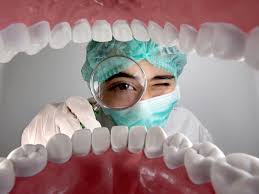It’s the middle of the night. The city is asleep, but you’re wide awake — clutching your jaw, pacing the floor, and wondering what to do about that excruciating toothache. You’ve tried ice packs, painkillers, even saltwater rinses. But the pain keeps building, and you know it’s time to call for help.
Dental emergencies don’t wait for business hours. Whether it’s a cracked tooth, severe infection, or sudden swelling, you need immediate relief — not a 9 a.m. appointment two days later. That’s where 24/7 emergency dental services come in.
This guide walks you through how to find urgent dental care at odd hours, what to expect, and when to seek help without delay.
What Qualifies as a Dental Emergency?
Not all dental issues require middle-of-the-night care. But some symptoms can’t — and shouldn’t — wait until morning.
Common Dental Emergencies Include:
-
Severe toothache that doesn’t subside with over-the-counter painkillers
-
Swelling of the gums, face, or jaw (may indicate an abscess or infection)
-
Knocked-out tooth due to trauma or accident
-
Chipped or broken tooth with sharp edges or exposed nerves
-
Uncontrolled bleeding from the mouth
-
Lost crown, bridge, or filling causing pain or sensitivity
-
Cracked tooth with pain when biting
-
Post-surgical complications, such as dry socket or excessive bleeding
⚠️ Warning Sign: If your pain is accompanied by fever, difficulty swallowing, or facial swelling, it could indicate a serious infection. Don’t wait. Seek emergency dental or even ER care immediately.
Step-by-Step: What to Do If You Have a Dental Emergency at Night
1. Stay Calm and Assess the Situation
Try to gently rinse your mouth, stop any bleeding, and reduce swelling using ice packs or saltwater rinses. Take OTC pain relievers like ibuprofen if needed (unless allergic or contraindicated).
2. Call Your Regular Dentist
Many dental practices have after-hours voicemail instructions or an emergency contact number. Even if they’re closed, they may redirect you to a nearby 24/7 clinic or on-call emergency dentist Charlotte NC.
3. Search for “24-Hour Emergency Dentist Near Me”
Use your smartphone or computer to search for:
-
“24/7 emergency dentist [your city]”
-
“Dental urgent care open now”
-
“Emergency toothache relief near me”
Look for listings with verified hours, patient reviews, and contact numbers.
🕒 Pro Tip: Google Maps or platforms like Practo (India), Zocdoc (USA), or NHS 111 (UK) offer real-time options and locations.
4. Call First and Confirm Availability
Even if a listing says “open 24/7,” it’s best to call and confirm. Explain your symptoms clearly so the clinic can advise whether you need to come in immediately or wait for the next available appointment.
Where Can You Find 24/7 Emergency Dental Services?
A. Dedicated Emergency Dental Clinics
These are specialized centers equipped to handle urgent cases around the clock. They often operate like walk-in clinics.
B. On-Call Dentists at Multi-Specialty Hospitals
Some hospitals have dental departments with emergency rotations, especially in urban areas.
C. Dental Schools with Emergency Programs
Universities with dental schools sometimes offer emergency care by supervised students or faculty at reduced rates.
D. Private Dental Clinics with Extended Hours
Some general dentists offer after-hours or weekend emergency slots for loyal patients.
Cost of Emergency Dental Care
Emergency services may cost more than routine visits due to the urgency and after-hours staffing. Charges vary based on location, time, and the treatment needed.
Typical Costs:
-
Emergency exam and X-ray: $50–$200 (₹1,500–₹5,000)
-
Tooth extraction: $100–$400 (₹3,000–₹12,000)
-
Root canal (emergency start): $300–$1,000 (₹10,000–₹30,000)
-
Pain management/injections: $50–$150
💡 Tip: Ask if the clinic accepts your dental insurance or offers payment plans for emergency services.
What to Expect During an Emergency Visit
Your emergency dental appointment will typically include:
-
Quick registration and symptom check
-
X-rays or clinical exam
-
Immediate pain relief or stabilization
-
A treatment plan (which may involve further visits)
In cases of severe infection or abscess, you may receive antibiotics or need drainage before definitive treatment.
Prevention: How to Avoid Late-Night Toothaches
While not every emergency is preventable, many late-night dental crises start as small issues. Preventive care is your best defense.
Tips to Stay Ahead of Dental Pain:
-
Visit your dentist regularly (every 6 months)
-
Don’t ignore sensitivity, discomfort, or gum swelling
-
Fix cracked or chipped teeth early
-
Maintain oral hygiene: brush twice, floss daily
-
Wear mouthguards if you play contact sports or grind your teeth at night
Should You Ever Go to the ER for Dental Pain?
Emergency Rooms are not equipped for dental procedures, but you should go to the ER if:
-
You have severe swelling affecting your throat or breathing
-
There’s uncontrolled bleeding
-
You have high fever with facial infection
-
You suspect a jaw fracture
The ER can offer pain relief, antibiotics, and referral, but you’ll still need to see a dentist for treatment.
Emergency Dental Services for Children
If your child wakes up crying in pain due to a dental issue:
-
Rinse their mouth gently with lukewarm water.
-
Apply a cold compress to the cheek.
-
Avoid giving aspirin (unless advised by a doctor).
-
Look for a pediatric emergency dentist or general emergency dentist comfortable with kids.
Final Thoughts: Don’t Suffer in Silence
Midnight toothaches are more than an inconvenience — they can be signs of serious underlying problems. The good news? Help is available, even when the world is asleep.
By knowing where to look, who to call, and what to do, you can get the relief you need and prevent complications. Whether it’s a severe cavity, an abscess, or a knocked-out tooth, emergency dental care is your lifeline to comfort and recovery.
So the next time you’re staring at the ceiling in pain, remember: You’re not alone — and 24/7 dental help is just a call or search away.









